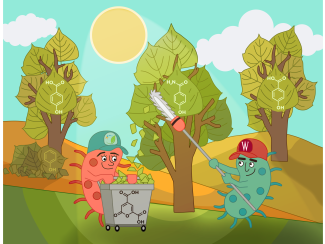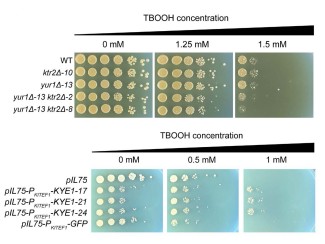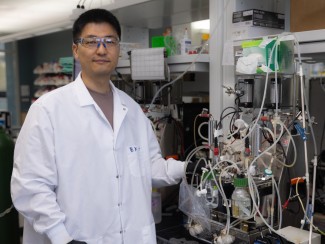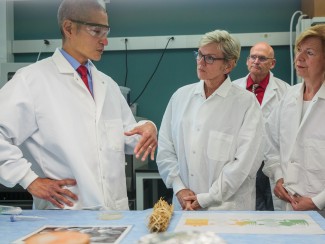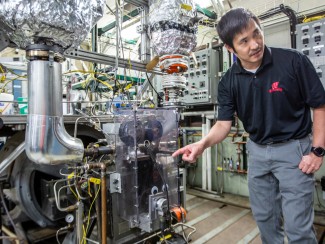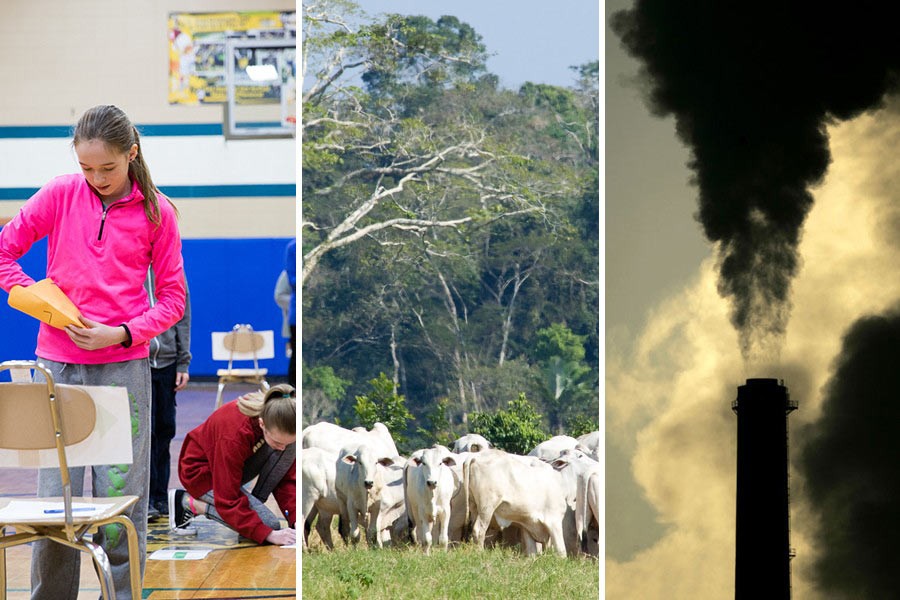
UW–Madison's energy experts have a wealth of knowledge to share and a commitment to contributing to discussions on energy. Here, you’ll find a monthly round-up of their media coverage.
Once a leader, Wisconsin lags in fight against greenhouse gases

Wisconsin State Journal, feat. Greg Nemet
Wisconsin has fallen behind other states in efforts to reduce the tons of climate-altering carbon dioxide that billows from smokestacks of coal-burning power plants.
La Follette School of Public Affairs Professor Greg Nemet provides insight into why Wisconsin has lagged behind in cutting emissions even as the cost of renewable energy has fallen.
Featured Researchers
Amazon deforestation, once tamed, comes roaring back

The Seattle Times, feat. Holly Gibbs
A decade after the “Save the Rainforest” movement forced changes that dramatically slowed deforestation across the Amazon basin, activity is roaring back in some of the biggest expanses of forests in the world.
Holly Gibbs, assistant professor of geography and Nelson Institute for Environmental Studies, warns that if we wait too long to do something about deforestation, “there would be no forest left.”
Featured Researchers
How do Wisconsin farmers deal with climate change? It's a balancing act, experts say

Wisconsin Public Radio, feat. Chris Kucharik and John Greenler
It’s too early to predict crop yields for this year. But according to the industry journal, AgProfessional, farmers in the north can expect to get planting earlier, which could lead to more opportunities for corn acreage in Wisconsin and elsewhere. Farmers attribute a longer growing season to climate change, and they're adjusting their practices accordingly.
Chris Kucharik, professor of agronomy and environmental studies, provides insight into how temperature fluctuations caused by climate change are impacting Wisconsin farmers, and how they're adjusting their practices to address that variability.
Featured Researchers
Greening I-94: New effort aims to fill alternative-fuel gaps in busy corridor

Wisconsin State Journal, feat. Gary Radloff
A new effort led by the Illinois-based Gas Technology Institute and funded by the U.S. Department of Energy seeks to ensure a 1,500-mile span of Interstate 94 from Michigan (through Madison) to Montana will have adequate fueling sites to serve drivers of the most widely available alternative-fuel vehicles, with electric and compressed natural gas vehicles at the forefront.
Gary Radloff, director of Midwest energy policy analysis at the Wisconsin Energy Institute, weighs in on the project and says it's encouraging that businesses and private groups are proactively seeking ways to make it easier for drivers of alternative-fuel vehicles to fill up or recharge.
More reaction steps are better for making biomass-derived pentanediol

Chemical & Engineering News, feat. George Huber and James Dumesic
Creating high-value coproducts along with biofuels is an important part of helping biobased chemicals become economically viable. But this is a tricky proposition because hundreds of interrelated compounds exist in both the petrochemical and biomass chemical pathways. That means sorting through many possible reactions to find optimal routes to target products. In one of the latest examples, George A. Huber, James A. Dumesic, and coworkers at UW–Madison, have found a new way to make 1,5-pentanediol, a building block for polyurethane and polyester plastics. An economic analysis of the possible routes surprised the team: a longer, multistep route turns out to cost about 40% less than a shorter, more direct route owing to better yield and lower catalyst and utility expenses.
UW partners with Bonduel on innovative science education

The Shawano Leader, feat. Chris Todd Hittinger
Lisa Sorlie designed inquiry-based classroom activities to use with her students in Bonduel, Wisconsin after participating in two professional development institutes for educators at UW–Madison last year.
As part of a National Science Foundation-funded program, Sorlie then spent seven weeks working alongside UW–Madison geneticist Chris Hittinger, immersing herself in advanced research on yeast evolution and metabolism.
Featured Researchers

